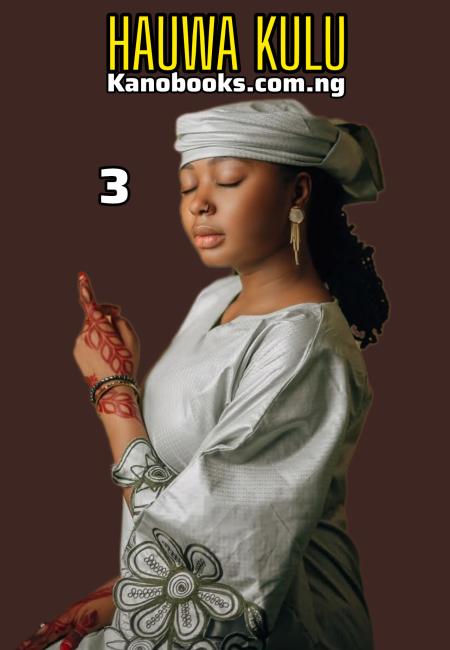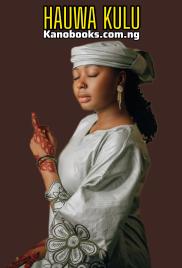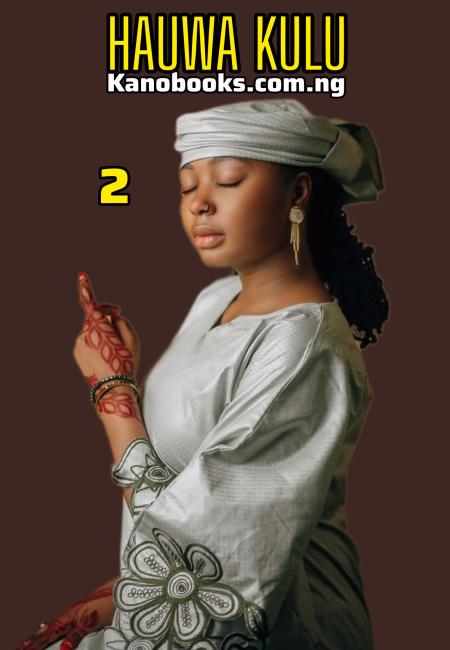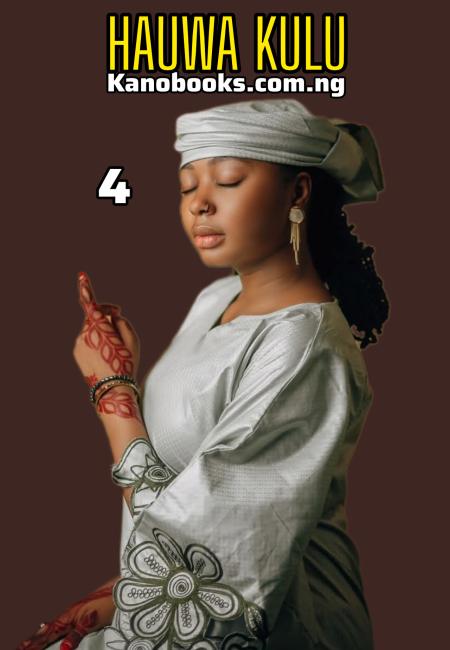
HAUWA KULU Yar Cikin Badala Part 4 end BY TAKORI.pdf
23 Fri 05, 2025
49
1899
File Size: 938.3 KB
Format: PDF
Phone Number:
Group: Mace Mutum Writers Association
Compiler: Mace Mutum Writers Association
Book Album: None
Last Download: 13 hours ago
---
We would use the profit we made to buy food for the next day. Every year, when Eid al-Adha approached, Inna Hauwa would sell the rams she had raised at the Ram Market, then buy new ones to raise for the next year.
With these two trades, Inna and I, Hauwa, lived for two whole years after Malam's disappearance, mourning his absence.
Although I, Hauwa, wasn’t considered particularly beautiful by conventional standards, I had the typical complexion of a native Kano girl—light brown skin, a body with curves, and striking, large white eyes resembling those of a dove. Aside from my eyes, there wasn’t much anyone would call “beauty” in my features.
I wasn’t tall or skinny, but I wasn’t fat either—just a soft, round-bodied girl. Since I was little, I was strong, eager to help Inna with chores, and deeply attached to her—especially after Baba disappeared. I realized she was the only one working hard to make sure I lacked nothing.
I truly loved and pitied Inna, even from a young age. She bustled around the house tirelessly, doing everything herself. That’s why I never hesitated to help her with cooking and housework as soon as I was old enough. I was quiet, disliked noise and chatter, and had large, threatening eyes—bright and watery, as if tears were always ready to fall.
I had a thick, natural head of Hausa hair that had never seen relaxer or any chemical straightener, just like back in the day. From childhood, I loved to bathe often and borrow Inna’s perfumes—“Binta-Sudan” or “Dan-Duala”—that she always used after her baths.
Later, Inna would buy me a personal lotion called “Dela-Maigurguwa,” and as creams became more common, she started buying me “TonyMontana” cream so I could fit in with other girls. I was twelve then—my first steps into puberty, though I hadn’t even started developing physically yet. I was a pure representation of Hausa heritage, natural and unaltered. You could say I was a natural black African beauty of my time.
That year, I completed primary school and passed the common entrance exam, probably because I started school early. Not long after, the results came out, and I, Hauwa—the hardworking one, as Inna called me—was accepted into Government Girls Secondary School Shekara (GGSS Shekara).
My parents were originally from Badala, true Kanawa (indigenous Kano people). Both Inna and Malam were from the very heart of Kano city, not from any village.
Inna’s parents had long passed, and she was the only surviving member of her family from Kofar Kansakali. She gave birth to me in her mature years—around age 40. That’s why some thought she was my grandmother. Now, there’s no one else for her to call “hers” except neighbors and old friends.
Malam Bilyaminu had a blood brother named Zakari, who worked as a cap washer. He lived in Kofar Dan Agundi with his family. Unlike Malam, Zakari had many children—about ten—from his five marriages. He currently had three wives in his household. But there was never peace between Malam and Zakari. Even as children, they didn’t get along, and this carried into adulthood.
After Malam’s disappearance, Inna would often complain: “Since your father went missing, his brother Zakari hasn’t come to check on us, hasn’t remembered he left behind a daughter. He hasn’t even cared to know about our well-being.” I’d tell her not to worry. “You already knew he didn’t care,” I’d say. “You shouldn’t have even gone looking for Baba at his house.”
But Inna insisted that losing someone is worse than death—at least with death, there’s closure. She believed Zakari should care, out of kinship and duty.
Strangely, just under two years after Malam’s disappearance, Zakari suddenly became wealthy. He demolished his old house and built a lavish two-story mansion in Kofar Dan Agundi, bought a brand-new Mercedes (a “Marsandi”), and opened a massive fabric store in Singa. He even earned the nickname “Zakari mai Atamfa” (Zakari the fabric mogul).
People were shocked by his sudden wealth. No one knew where it came from, but he kept quiet. Whenever anyone questioned him, he’d just say, “Allah can make a person rich overnight.”
But that wasn’t what concerned Inna or me. What mattered was that I was preparing to start school at GGSS Shekara—something Zakari never allowed any of his own children to do, except one: Jamil Zakari, secretly raised by his divorced mother, and called “Yaya Jamilu” by his siblings.
“APOLO”
A few years back, there was a contagious eye disease called “Apollo” (eye flu) that spread across Kano. Both children and adults got it.
In January that year, the outbreak reached our town, and I, Hauwa, caught it at Shekara school. But Inna didn’t catch it—perhaps due to her strong blood and frequent use of herbal medicine, which gave her natural immunity.
At first, Inna didn’t take my condition seriously. My eyes turned red and shrunken, like cherries, but she wasn’t alarmed because nearly every child had it, even some adults. Normally, the illness would fade in two or three days without treatment.
So Inna assumed it would go away on its own. But in my case, it didn’t. After two months, my eyes worsened. They became crusty and painful, and I couldn’t open them in the morning. If you were squeamish, you wouldn’t be able to eat after seeing them.
My eyes started to water constantly and became severely swollen and red. Inna, a traditionalist who didn’t believe in hospitals, would rinse my eyes with hot salted water and apply white eye powder (kwalli). I’d cry from the pain, but she insisted it was the best remedy.
After three months, the condition turned into full-blown cataracts. A white film (known as “hakiya” in Hausa) completely covered both eyes.
That’s when Inna finally panicked. People began scolding her, saying, “Why haven’t you taken her to the hospital?” They warned her that cataracts were no joke.
Still, she resisted. I had to stop going to school because of complaints from teachers. Inna insisted the white eye powder would dissolve the cataract eventually. But it only got worse, until both my eyes were completely white.
One afternoon, I sat on a mat reading a schoolbook. I’d long suspected my vision was deteriorating, but that day, I opened the book and couldn’t distinguish a single letter. Only the white of the pages and flashes of light danced in front of my eyes. I realized I was either blind or about to be.
Frightened, I called out to Inna in the kitchen: “Inna! Come quickly! I think I’ve gone blind! I can’t see anything in my book anymore!”
The shock Inna felt at that moment was worse than anything she had ever experienced—not even when she found out Baba was missing, or when Zulkiflu’s body was pulled from the river.
Perhaps it was because she loved me so much, or maybe it was because I was her only child, the only one left to fulfill the dreams she and Malam never achieved—especially her dream of me becoming educated, self-sufficient, married, and a mother. But now, I had lost my sight.
She dropped everything and ran to me, her wrapper nearly falling off, crying out, “HAUWA! GOD FORBID! INNALILLAHI WA’INNA ILAIHI RAJI’UN!”
---
This is the story Barrister Hauwa Bilyaminu shared earlier today at her “meet and greet” event with organizations that have supported her journey—including northern Nigerian disability groups, both men and women—finally putting to rest the rumors: Hauwa Bilyaminu is indeed physically challenged.
She was celebrating her 50th birthday, accepting the leadership of the Nigerian Bar Association, and marking her 31st wedding anniversary to her “pace-setter” husband.
Barrister Hauwa Bilyaminu of Kofar Naisa shared this origin story on a day filled with achievements, directly from her own voice.
I, Sumayyah Abdulkadir (Takori), will continue to follow her story from the moment she lost the most vital human sense—her sight—until today, as she celebrates her golden jubilee.
---
That was the beginning of Hauwa-Kulu’s blindness—caused by a condition called cataract, or what Inna jokingly called "licensed blindness," since she believed she “bought it” for her daughter with her stubbornness.
Initially, Inna thought Hauwa was just playing. But when Hauwa began to grope around even in daylight, it became clear she truly couldn’t see. She could only detect light or the shadow of someone standing nearby. She had to be led around by hand.
This time, Inna was terrified. She asked around where she could take Hauwa, and someone told her to go to the eye clinic at Murtala Mohammed Specialist Hospital.
The next day, they walked all the way from Kofar Naisa to the hospital on foot.
This was Inna’s third time in a hospital. The first two were for consultations. She was a strong believer in traditional medicine, always avoiding hospitals. She didn’t even allow Hauwa’s birth to happen there.
They had no idea how to get a hospital card. With the help of another woman who had brought her daughter to see a doctor, they registered and joined the long queue to see the eye specialist.
It happened to be Thursday—the designated eye clinic day—so the line was extremely long. They were nearly the last.
Some of the nurses were unkind. When they looked into Hauwa’s eyes, they hissed and muttered insults about ignorant villagers who let diseases go untreated until it was too late…
---





